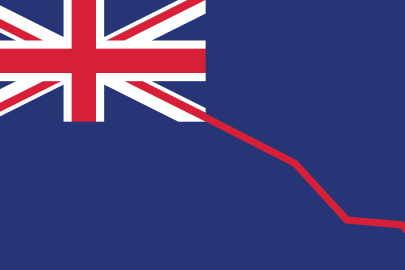Aug 10, 2016 Politics
Above: Some of the assembled audience at a public meeting in St Heliers, 8th August 2016. Photo: Simon Young exclusively for Metro.
On Monday night in St Heliers they were so well behaved. The citizens who turned out to hear the mayoral candidates speak were so polite they clapped all the candidates, even those they must have thought were rabid lunatics. They even laughed at jokes about rich people and Nimbys that they cannot possibly have thought were funny.
Mind you, it wasn’t the broadest cross-section of the city: of the 250 people squeezed in the St Heliers Community Hall, 99 per cent were Pakeha and the average age, I would say, was a good 70.
But it was remarkable. These were the same people, many of them, who crammed the meeting room of the Auckland Council back in February and booed and hissed every speaker they didn’t want to hear from. Then, they were disgraceful. On Monday, they were so lovely it was like someone had given them a jolly good talking to. Perhaps they had.
The people of St Heliers even laughed at jokes about rich people that they cannot possibly have thought were funny.
Still, the evening had its weird and preposterous moments. There were six candidates. Only two have any chance of winning, but none of them exhibited any kind of self-doubt at all.
Hard-left activist Penny Bright kicked things off by telling the crowd, “You’re here because you don’t like this lunatic plan,” and got an appreciative laugh. Even when she said she wanted to create “an Auckland for the 99 per cent, not the one per cent” and complained about “bankers, land bankers and money launderers”, they seemed to enjoy it.
The other unequivocally leftist candidate was David Hay, former Treasury analyst, former Green Party member and now renegade greenie (the Greens are in coalition with Labour and support Phil Goff). Hay told the meeting that Auckland “is going to stop burning carbon”, which got them muttering. He said it would not be a matter of choice, and they muttered some more. He supported the Unitary Plan (UP) and also said wild weather will force a “managed retreat” from Tamaki Drive. The muttering got louder.
Poor David Hay. Where Penny Bright is an entertaining speaker who makes the most of her talents, Hay is like a serious and slightly exasperated schoolteacher who can’t quite keep the scold out of his voice. He comes across as both harmless and not very likeable. The muttering was joined by sighs.
John Palino is back, though it’s not clear why.
John Palino is back, though it’s not clear why. He was the rightist candidate last election who, we learned after the votes were counted, was embroiled with some of the people involved in Len Brown’s very messy sex scandal. Then, he had many National Party backers; now, he’s utterly on his own. He advocates cutting rates by 10 per cent and is against greater suburban density: “you never, ever, ever intensify the suburbs”.
He makes the oddest claims. He says the Unitary Plan (UP) is not a plan. He says it should enable Albany, Henderson and Manukau to become new city centres, but that’s precisely what it already does. He says it shows “we’re modelling ourselves on Los Angeles”, yet the reverse is true. Auckland has been modelled on the sprawling, car-centric LA model since the 1950s and the UP is designed to change that.
Mark Thomas is also on the right and also opposed to the Unitary Plan. He’s a member of the local board who wants to step up. Unlike Palino, he says he supports greater suburban density; he just thinks it should be up north, out west and down south. Not in the eastern suburbs.
He got quite a big clap when he complained about the council spending $20 million on the new Vector Wero Whitewater Park in Manukau. Putting a recreational/educational/lifeskills facility like that in south Auckland? Whatever were they thinking?
And yet, although Thomas says everything his constituents want to hear, they’re not going to vote for him. Rumours have it the party’s private polling puts him behind Penny Bright. It’s not easy to see why he’s putting himself through the humiliation of staying in the race.
It’s not easy to see why Mark Thomas is putting himself through the humiliation of staying in the race. Maybe he’s in it for the lols.
Maybe he’s in it for the lols. Maybe Bright, Hay and Palino are too. The only two candidates with a chance of winning are Vic Crone and Phil Goff. They both support the UP, broadly, which gives the hottest political issue in Auckland a peculiar character: there is no leading champion for local suburban naysayers.
Vic Crone, aligned with Auckland Future (AF) and therefore the unofficial National Party candidate, seemed unfazed by the Prime Minister’s comments on RNZ that morning, when he had declined to endorse any of the candidates, including her. She believes council spending is out of control and has signed the AF pledge to keep rates rises to an average of two per cent. Phil Goff says the council has “got to learn to do more with less” and is committed to keeping average rates rises under 2.5 per cent.
Both talked about the need to address transport problems and build more housing, especially affordable homes. Crone wants to develop a long-term plan to move the port; Goff is opposed to any more port reclamation and is also open to the port moving over time. Both want to create public-private partnerships to help the city grow.
What’s the difference between the two? She’s 43 and comes from private enterprise (Telecom/Spark and Xero). She says she is the only candidate with experience running billion-dollar budgets. He’s 63 and has been a politician almost all his adult life. He was an associate finance minister under Michael Cullen and says he knows how to run billion-dollar budgets because he was a minister in charge of them.
After each candidate had made their introductory remarks, they were then asked a series of “only in the eastern suburbs” questions.
From the playbook of fantasy politics: “Will you commit to a zero per cent rates increase and no reduction in services?” Palino was happy to say yes. Thomas said zero should be an option, but personally he did not favour the lack of growth it entails.
From the planet where councils just get the rubbish cleared and fix the potholes: “Will you stop the CCOs [council-controlled organisations] from doing the work of the private sector?” The example given was ATEED, the council’s tourism, events and economic development arm. Goff said events like the “Lantern Festival, Diwali, Pasifika and the league Nines” were great. “Should the council withdraw from events? No way.”
Crone said the council did too many things that were not core business. She also said the CCOs “need to be pulled back into the council”. This is a peculiar development. CCOs were invented by the centre-right as a mechanism to keep councillors away from the business operations of council, in the belief that elected officials compromise business efficiency.
Is it the centre-right in general that now thinks CCOs should be subject to the whims of councillors, whatever their competence, or just Vic Crone?
From the world of the disgruntled wealthy: “Will the candidates reduce the Uniform Annual General Charge to overcome unfair rates?” The UAGC is the portion of your rates that’s the same for everyone, where the rest is set on a scale related to the value of your land. The higher the UAGC, the more people with valuable land have to pay.
Crone dodged the question and talked about the unpopularity of the council. Goff said that under him, “the UAGC won’t go up”. He wasn’t afraid to tell this crowd things they might not want to hear: “That would transfer costs from you and I, and we can probably afford to pay, to people who can’t afford to pay. And that would be unfair.”
And what exactly was their position on the Unitary Plan? Goff said, “I support the thrust of the plan.” He added, in a fine display of mixed-metaphortosis, that it was “not a silver bullet and not set in concrete”, and that if parts of it were found to be not working, “we’ll change them”. He cited protection for heritage buildings as one area where the UP was not strong enough.
He also warned that it was clear the government would override the council if it did not produce a coherent and workable plan by the August 19 deadline.
Crone criticised not the plan but the process: “I don’t support undemocratic processes and that’s exactly what’s happened here.” She said it was “wrong for the UP to be handled by the council’s development committee, rather than the governing body of council”. In fact, the committee (which includes all the elected councillors but also includes two members of the Independent Maori Statutory Board), will consider the plan and then the governing body will have the final say.
But she also said, referring to the UP’s 30-year timeline: “We need those 430,000 extra homes. I support a review but we need those homes.”
Len Brown’s “liveable city” came in for quite a bit of scoffing, from the candidates and the crowd. Crone said it was “not aspirational enough”, but oddly then said most of the prescribed goals for the liveable city were “environmental… and educational… and nothing to do with council”. That suggests a very old-fashioned view of what councils are for.
And she said the council was “completely absent from what the long-term plan for Auckland looks like”. It’s hard to know what that means. The “long-term plan” is actually a 10-year council document, and it fits into the 30-year Auckland Plan, which was developed by council and sets out the vision for the city on which the Unitary Plan is based.
What’s the difference between Crone and Goff? He doesn’t say things that don’t mean anything but sound catchy.
What’s the difference between Crone and Goff? He doesn’t say things that don’t mean anything but sound catchy. She does, although less often than she used to. He’s adopted the vision of the current mayor and she’s adopted the obsession with rates of her political sponsors. But she, like him, clearly embraces the values of a modern, compact city and he, like her, clearly intends to be fiscally rigorous. Neither has yet worked out a way to articulate their own vision for the city, except in bland generalities.
They’re not backward looking, either of them. That’s really good news for Auckland. But Goff is hesitant by nature and Crone is inexperienced, and neither has yet worked out a bold way to lead the city into the future. Still, it’s early days; the election won’t be over till October 8.
As for St Heliers, when it came time for questions from the floor, there was a right royal flurry: on the port, then on roadside berms and then, before we knew it, on whether any of the candidates would commit to rescuing more cats. Yes, seriously.





